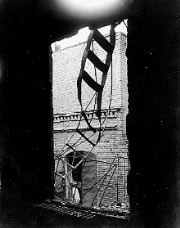A fire escape plan is for use by the public and occupants in case of a fire as well as for the fire fighters.
Fire escape door regulations.
Each fire door including its frame and hardware must be listed or approved by a nationally recognized testing laboratory.
An external window or door is a controlled fitting under the building regulations and as a result of this classification these regulations set out certain standards to be met when such a window or door is replaced.
An opening into an exit must be protected by a self closing fire door that remains closed or automatically closes in an emergency upon the sounding of a fire alarm or employee alarm system.
Fire doors should be compliant and tested to bs 476 part 22 or to the european equivalent bs en 1634 1.
The regulations apply to thermal performance and other areas such as safety air supply means of escape and ventilation.
A good fire escape plan should therefore be clearly visible with legible lettering and the fire escape route made clear to the readers.
Accordingly any such doors should either not be fitted with a lock latch or bolt or alternatively any such fitting must be readily operable without the use of a key in the direction of escape and without requiring more than one mechanism to be manipulated.
Door and frame requirements wooden fire doors must have solid wood or mineral cores while steel doors typically have honeycombed or insulated cores.
Exits must be separated by fire resistant materials that is one hour fire resistance rating if the exit connects three or fewer stories and two hour fire resistance rating if the exit connects more than three floors.
Fire escape plan is to be provided for all buildings except purpose group 1 irrespective of height.
Building regulations for fire safety in residential homes including new and existing dwellings flats residential accommodation schools colleges and offices.
A fire door is more than just the door itself it refers to the door the fixings the fitting the ironmongery latches handles etc and the frame.
The door should be prepped at the factory so there is no more than three quarters of an inch of clearance between the bottom of the door and the finished floor.
In terms of fire safety the final exits on an escape route in a public building are known as fire exits.

